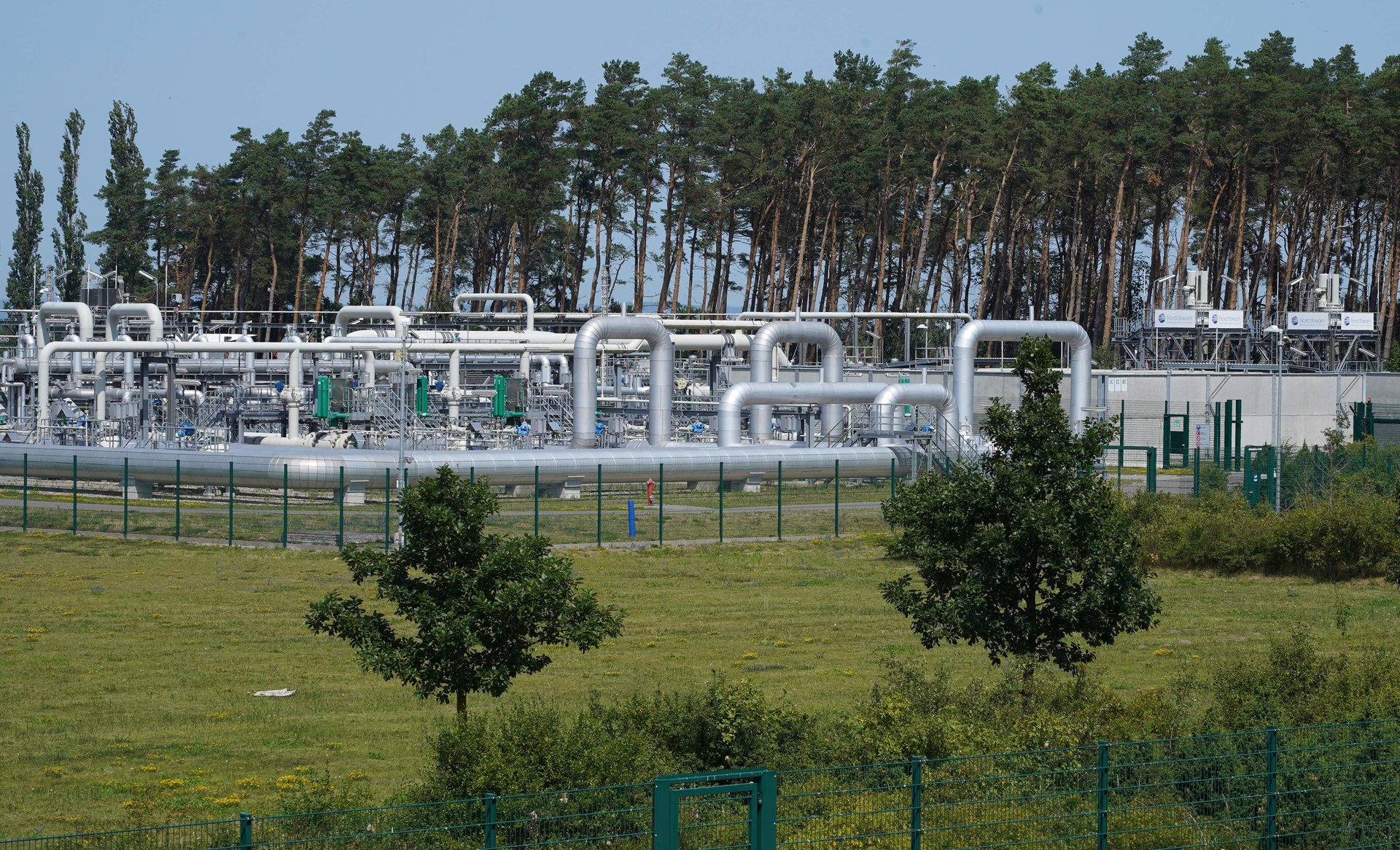🌎 Prices ⬆️ for EU gas, Quest 2, and McNuggets
Good morning, Quartz readers!

Good morning, Quartz readers!
Here’s what you need to know
European natural gas prices soared. Russia’s Gazprom cut back Nord Stream 1 pipeline’s capacity by 20% yesterday in a move the EU has called “politically motivated.”
India received $18 billion bids in its first 5G auction. National telecom operators in the world’s second-largest wireless market offered almost double initial estimates.
China’s Huawei announced a new ride-hailing service. Petal Chuxing will operate on the tech company’s freshly updated operating system, Harmony OS 3.
Thailand took a step towards permitting casinos. Lawmakers recommended the government allow “entertainment complexes” to draw in investors, potentially garnering the country hundreds of billions of baht in additional tax revenue.
The Philippines was struck by a 7-magnitude earthquake. It triggered landslides, destroying buildings and killing at least five people.
McDonald’s raised the price of cheeseburgers. Citing rising costs, stores in the UK and Ireland will be increasing prices on some menu items for the first time in 14 years.
What to watch for
A clear trend is emerging for Big Tech companies during this latest earnings season: growth has slowed, things are mostly OK, but a storm may be coming, so let’s batten down the economic hatches just in case.
Last week, results from social media cool kid Snap stoked recession concerns when the company reported that it had missed its second quarter (pdf) revenue and user growth targets. But, so far, that’s where most of the really bad news ends.
Although Alphabet’s revenue growth was down (pdf) in the second quarter, its search advertising revenue was up. Similarly, Microsoft missed analysts’ earnings forecasts, but nevertheless was buoyed by the strong growth in its cloud business offerings.
Both companies’ stocks were up after earnings releases, calming some market fears. Tech isn’t out of the water though, with expectations of a future slowdown in hiring and growth.
The reality of paying for virtual reality
Meta’s Quest 2, the biggest bargain in the virtual reality devices space, just got a bit more expensive. The company, which reports earnings on Thursday, is hiking the price of its 128 GB entry-level device from $300 to $400. Meta is also raising the price of its 256 GB Quest 2 to $500, stating production and shipping costs as the key factors.
Meta’s earnings report could indicate that the company is finally buckling to shareholder pressure to make its VR unit profitable. While other tech companies struggled to make their devices available during the pandemic’s supply chain disruptions, Meta managed to keep up its deliveries of Quest 2, though it did so at a loss. But as recession concerns mount, Google, Microsoft, Meta, and other large companies’ hiring freezes mean it’s going to be a pricier ticket to the metaverse.
Don’t call monkeypox an STI
The WHO declared monkeypox a health emergency of international concern, and the way we talk about the disease—both in the public sphere and amongst ourselves—will have a big impact.
Misinformation is making it more difficult to inform the public about the disease as inaccuracies about monkeypox transmission get mixed with conspiracy theories. Last week, the Associated Press reported that some experts fear that monkeypox “is on the verge of becoming an entrenched STD—like gonorrhea, herpes and HIV.”
Monkeypox is not a primarily sexually transmitted disease (STD) or infection (STI)—the main avenue of contagion is skin-to-skin contact, so safe sexual practices aren’t sufficient to control the spread. Here’s all the info you’ll need to combat the “gay disease” misinformation surrounding monkeypox.
✦ Find stories like this to be helpful? Support our journalism by becoming a Quartz member. Sign up today and get 40% off!
Quartz’s most popular
⛽️ The White House will lower gasoline prices today by purchasing oil tomorrow
Surprising discoveries
Dogs could be capable of reading human intentions. Researchers used a slice of sausage to test out the theory.
Saudi Arabia wants to build a 105-mile-long city. “The Line” plans to run entirely on green energy, have no cars or roads, and champion a vertical structure.
There’s a movement to decolonize New Zealand’s name. Campaigners want to use the Māori word “Aotearoa” instead.
A blockchain gaming platform is making its own version of Minecraft. It’s had to DIY, given the original game has said “no” to crypto.
US astronaut/moonwalker Buzz Aldrin’s Apollo 11 jacket became the priciest item ever sold at a US auction. It went for over $2.77 million.
Our best wishes for a productive day. Send any news, comments, moon fashion, and sausage bribes to [email protected]. Reader support makes Quartz available to all—become a member. Today’s Daily Brief was brought to you by Nate DiCamillo, Annalisa Merelli, Morgan Haefner, Julia Malleck, Sofia Lotto Persio, Adario Strange, and Susan Howson.